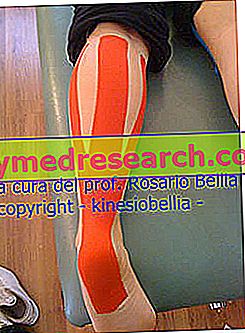Definition
Jet lag - also known as "time zone syndrome" - is a disorder of the circadian rhythm associated with displacement (generally in an airplane) from one area of the planet to another, with different time zones.
Causes
Jet lag is a phenomenon that occurs when - moving from one time zone to another - one's biological clock is altered and in contrast with the light / dark cycles it is normally used to. Therefore, it can be said that there is a lack of synchronization between one's circadian rhythms and the new conditions of light / dark alternation of the place of arrival.
Symptoms
The main symptoms that can be induced by jet lag are: daytime fatigue, sleep disorders (caused by an altered melatonin secretion), loss of appetite, nausea, headache, muscle soreness, difficulty concentrating, irritability, difficulty digestion, constipation or diarrhea.
Information on Jet Lag - Jet Lag Care Drugs is not intended to replace the direct relationship between health professional and patient. Always consult your doctor and / or specialist before taking Jet Lag - Jet Lag Medicines.
drugs
Before intervening with a pharmacological treatment, small measures could be taken (both before and during the trip) to try to prevent - or at least limit - the symptoms induced by jet lag.
Before the trip you can try - if possible - to bring your sleep rhythms and meal times slightly closer to those you will follow once you arrive in the destination town.
While traveling, instead - especially if it is very long - it is advisable to try to rest as much as possible, eat light meals, drink plenty of water and avoid the consumption of alcohol or drinks such as tea or coffee.
In the case in which the shifts between different time zones are frequent and / or in the case in which the jet lag is perceived as a very limiting disorder, then one can think of intervening with a pharmacological treatment. The latter is generally aimed at countering sleep disorders caused by the jet lag itself.
The drugs that can be used for the treatment of jet lag are short-acting benzodiazepines and benzodiazepine-like drugs.
Moreover, even taking melatonin in small doses could be useful in combating the phenomenon of jet lag, especially when crossing many time zones.
Finally, in some cases, phototherapy can be used to restore the correct sleep-wake rhythm.

Benzodiazepines
As mentioned, benzodiazepines can be used to counteract the sleep disorders that characterize jet lag. More in detail, the benzodiazepines used for this purpose are those with a short or very short half-life (2-6 hours, indicatively).
The active ingredient most often used against jet lag is triazolam (Halcion ®). This benzodiazepine has specific therapeutic indications for the occasional and short-term treatment of insomnia. The dose of medication usually used in adult patients is 125-250 micrograms of active ingredient per day, to be taken orally just before bedtime.
Benzodiazepine-like drugs
Benzodiazepine-like drugs are active ingredients that have a mechanism of action similar to that of benzodiazepines, but have different chemical structures.
The benzodiazepine-like drugs used to combat sleep disorders caused by jet lag belong to the class of so-called "Z drugs" (or "Z drugs"). In fact, these medicines have specific therapeutic indications for the short-term treatment of insomnia.
- Zolpidem (Stilnox ®): zolpidem is a drug belonging to the imidazopyridine family and has a sedative type of action. It is available for oral administration in the form of tablets or oral drops. Generally, it is recommended to take 10 mg of the drug just before bedtime. The duration of the treatment must be as short as possible.
- Zopiclone (Imovane ®): also zopiclone has sedative activity and is available for oral administration in the form of tablets. The usual dose of drug is 7.5 mg of active ingredient per day, to be taken before going to bed. Also in this case, the duration of the treatment must be as short as possible.



